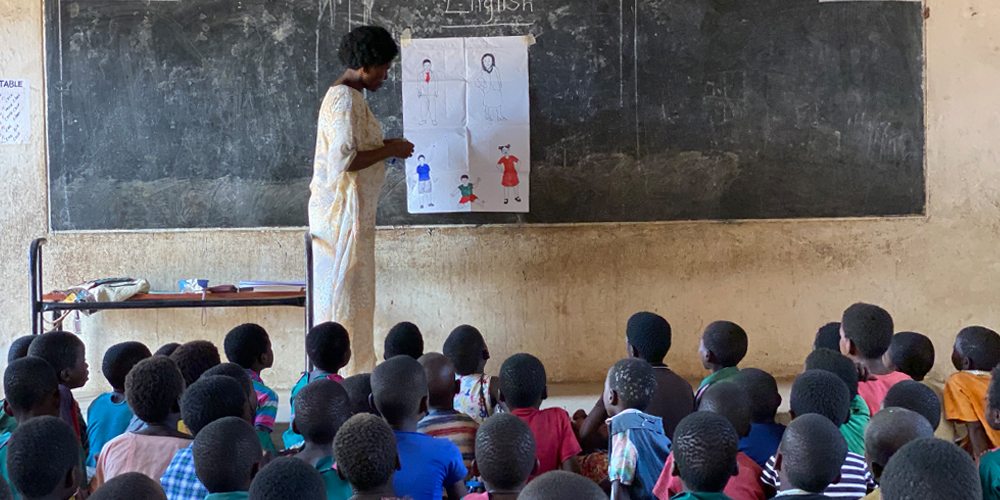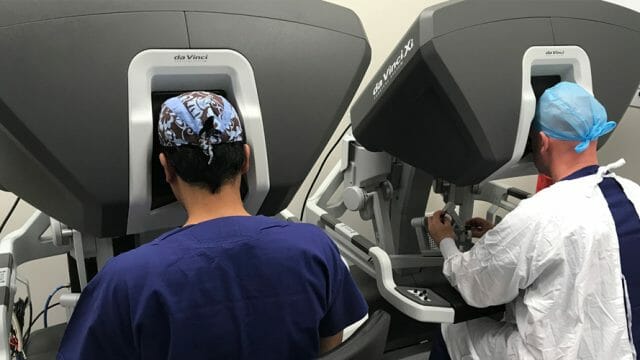Some of the education leaders of the North American Division (NAD) were recently part of an assessment team that traveled to Malawi to […]

Some of the education leaders of the North American Division (NAD) were recently part of an assessment team that traveled to Malawi to evaluate the educational needs at ADRA-sponsored schools.
The schools are located in the most deprived areas of one of the least developed nations in Africa. According to the United States Agency for International Development (USAID), 37 percent of young children in Malawi are chronically malnourished. ADRA runs a school feeding program in the neediest schools.
“It is such a privilege to work with ADRA to assist children’s education in one of the most impoverished nations on earth,” said NAD Elementary Education director Leisa Morton-Standish. “Our colleagues in Malawi have inspired us with their sacrificial service.”
Desiree Bryant, NAD Education assistant director and project coordinator, agreed, while stressing some of the challenges people faced there.
“A teacher with cerebral palsy told us, ‘Disability is not inability but possibility.’ He exemplifies his motto every day as he not only has a hundred second-grade students in his classroom but also mentors children with disabilities.”
“I gained far more insight and inspiration than I felt I could give,” added NAD Technology for Education director Martha Ban. “They do not have computers, the internet, or even electricity in their schools, but they meticulously compile statistics and make data-driven decisions.”
NAD Secondary Education director Stephen Bralley explained the rationale for the support North American educators provided in Malawi.
“It is an important initiative because the heart of Adventist education is service,” he said. “This is all about being the hands of Jesus in a world of need. The opportunity for our teachers to share and learn in Malawi will make a lasting change for our teachers, our students, and Malawian teachers and students as well.”
ADRA Educational Initiatives in Malawi
The path forward for Malawi is through education, leaders said, but currently many children don’t complete their basic education. The situation is particularly tragic for girls. At one of the schools the NAD team visited, almost 70 percent of girls enrolled in first grade were no longer in school by the fifth grade, and more than 90 percent of girls were no longer in school by eighth grade. A Malawian educational administrator explained, “Many of our girls get married young, get pregnant, or are forced to work.”
“We are delighted that the NAD educators came, and we’re looking forward to exploring collaborative opportunities to work together to help some of the most disadvantaged children on the planet,” said Adam Wamack, who takes groups of volunteers on ADRA service trips around the world. “NAD educators displayed great professionalism and goodwill on this trip. We’ve gone to some challenging places, been up before dawn, out in the midday heat, bounced along the deep ruts of dirt tracks, and been many miles from the nearest flushing toilet. They’ve handled it all. And their interactions with the Malawian teachers and students have been deeply respectful and loving.”
Janelle Walikonis, who oversees ADRA’s school feeding initiative, shared what ADRA is doing not only in Malawi but across the region.
“ADRA is feeding 50,000 children at 186 schools in five nations across Southern Africa,” Walikonis reported. “Feeding programs are important not only because the children need food but because food helps keep kids in school and to improve their academic performance. We are looking forward to exploring a partnership with the NAD education [office] to improve the quality of education, and thereby further nourish the dreams of the students.”








